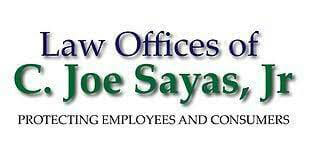Firing after medical leave may be disability discrimination

Alejandro Gonzalez worked as a loader coordinator for Swissport, a company which provides airport ground and cargo handling services. Gonzalez worked at Swissport’s LAX location for more than 10 years where he was promoted from bag handler to load coordinator due to his stellar performance.
In September 2016, Gonzalez was at work when he felt a pain to his chest. He was rushed to the hospital, where he was diagnosed with a heart aneurysm. Gonzalez later underwent an open heart aortic valve surgery and his doctors placed him on medical leave.
Gonzalez spent over six weeks in the hospital and inpatient care facility. From there he spent another two weeks at a rehabilitation facility. His doctors placed him off work until October 31, 2016. Medical records were submitted to Swissport to inform them that Gonzalez needed additional medical leave.
In November 2016, Gonzalez was again hospitalized due to an infection caused by the open-heart surgery. At around this time, his doctors issued a certification indicating that Gonzalez cannot lift more than 20 pounds permanently. Gonzalez again submitted the required information to his employer and asked for additional medical leave. He was informed that he was no longer on medical leave but on “personal leave.” He was assured that his “job would not be in jeopardy.”
Gonzalez’s doctors released him back to work on January 19, 2017, with a restriction that he should not lift more than fifteen pounds. This work restriction has minimal impact on the job duties of a loader coordinator, which rarely requires lifting in excess of fifteen pounds.
When Gonzalez showed up at work, the HR Manager told him “We don’t have a new position available for you. You can only lift fifteen pounds. Go collect unemployment.” When Gonzalez asked if he was coming back to work, he was told, “No, you’re done.” A few days later, Gonzalez received a notice from Swissport, where the employer stated that Gonzalez had “Voluntary quit.” This was not true because the employer fired him.
Gonzalez sued the employer for disability discrimination, failure to accommodate, failure to engage in the interactive process, and retaliation, among other things.
California law prohibits discrimination based on disability or medical condition. The employer has a duty to provide reasonable accommodation to disabled employees to enable them to work despite their disability. Depending on the employee’s specific restrictions and the employer’s circumstances, an example of reasonable accommodation would be to make facilities accessible to and usable by disabled individuals; offer part-time or modified work schedules; or re-assignment to a vacant position.
In Gonzalez’s case, the employer had a duty to engage in interactive process and find out whether reasonable accommodation would allow the employee to perform his job duties. Even if the employee can no longer perform his job duties, offering a vacant position may be a reasonable accommodation, even if the position pays less than the employee’s former job. The employer must in good faith determine whether the employee can be transferred or reassigned to a vacant position. The employer is in a better position to know what jobs are vacant or may become vacant.
After 6 days of trial, the jury found that the employer engaged in disability discrimination. They returned a verdict in favor of the employee, awarding him $250,000 in past lost wages, and $800,000 in future lost wages, for a total economic damage of $1,050,000.00. Despite the jury verdict, the court ordered a new trial on damages, which is yet to be set.
Regardless of the outcome of the new trial, this case and others like it, shows that jurors give serious consideration to victims of workplace discrimination. Reasonably accommodating disabled workers who can perform their jobs and giving them an equal opportunity to join the workforce is an important American value protected by law.
The Law Offices of C. Joe Sayas, Jr. welcomes inquiries about this topic. All inquiries are confidential and at no-cost. You can contact the office at (818) 291-0088 or visit www.joesayaslaw.com. [C. Joe Sayas, Jr., Esq. is an experienced trial attorney who has successfully recovered wages and other monetary damages for thousands of employees and consumers. He was named Top Labor & Employment Attorney in California by the Daily Journal, consistently selected as Super Lawyer by the Los Angeles Magazine, and is a past Presidential Awardee for Outstanding Filipino Overseas.]

